Buy or gift a stand-alone digital subscription and get unlimited access to dozens of back issues for just £18.99 / $18.99 a year.
Please register at www.exacteditions.com/digital/cornucopia with your subscriber account number or contact subscriptions@cornucopia.net
Buy a digital subscription Go to the Digital EditionBorn into penury, he rose to be revered across Europe. Yet the Ottoman Empire’s youngest ever grand vizier is all but forgotten at home. David Barchard charts the dramatic career of the master strategist Âli Pasha
In the mid-nineteenth century, the Ottoman statesman Âli Pasha, who was five times sadrazam, or grand vizier, and seven times foreign minister of Turkey, was one of Europe’s most famous statesmen. The Emperor Napoleon III said that he wished he could find a foreign minister as gifted as Âli Pasha. Lord John Russell, British prime minister in the 1860s, when writing personal letters to his ambassador in Istanbul, always asked for his best wishes to be passed on to “my good friend Âli Pasha”. After receiving news of the pasha’s death in 1871, the German chancellor, Bismarck, usually no admirer of the Turks, instructed the German ambassador in Istanbul to buy the ink-stand and pen with which the pasha had worked. Today they remain preserved in a museum in Berlin.
That is more of a memorial than Âli Pasha has in his own country, where few people, if any, remember the crucial part he played in transforming Turkey from a tottering medieval potentate into a nation run along modern lines, or how his deft and subtle diplomacy helped prevent an early break-up of the Ottoman Empire and so ensured Turkey’s survival as a country. But his story also deserves attention as the triumph of a humane official with an extraordinarily brilliant mind over a lifetime of personal misfortunes.
Most high officials and politicians in all countries in the mid-nineteenth century were grandees and aristocrats. But Âli Pasha’s origins were almost the humblest imaginable, and to some extent, no matter how high he later rose, that fact haunted his whole life. He was born in Istanbul in March 1815 and given the name of Mehmet Emin. His father was Ali Rıza Efendi, doorkeeper of the Mercan Mosque, a small, insignificant shrine near the covered bazaar that has always escaped notice in the guidebooks. His father’s job, as the pasha was never allowed to forget by some of his colleagues, was to open the garden gate of the mosque in the morning and to close it again in the evening. Behind his back in the ministry, even as grand vizier, Âli was nicknamed Kapucu-zade or Doorman’s Son.
The family was desperately poor. Ali Rıza moved on to a job in the spice market but lacked the money to give his son even a traditional Islamic mosque education. When Mehmet Emin was only fourteen, his father died and any hope of schooling vanished.
After such a beginning, he might easily have ended his days as an anonymous labourer, but someone in the imperial service spotted the boy’s extraordinary promise. Quite why or how we do not know. Possibly it had something to do with Âli’s lifelong brilliance at calligraphy. In September 1830, the young Mehmet Emin was taken into the palace service for training as a scribe. Though he had grown up in poverty, the doorkeeper’s son immediately turned out to be a natural aristocrat of the intellect. Within a few months he was learning not just the intricacies of the Ottoman scribal tradition but also about affairs of state and his first words of French. By the time he was eighteen, he was a clerk in the Tercüme Odası, or translation bureau, the office which conducted the sultan’s diplomacy and was to evolve in a few years into the Turkish foreign ministry. Less than ten years after being taken into the palace, he had served in Vienna and acted for a spell as chargé d’affaires at the embassy in London.
By then Mehmet Emin had long been known by his unusual ‘palace name’ of Âli, then often spelt Aali in English and French, which he seems to have cherished. Perhaps it symbolised for him the extraordinary change in his own circumstances. At any rate he must have been insistent in making sure that even foreigners unfamiliar with Turkish got it right, for no one anywhere in nineteenth-century Europe ever mistook “Aali” – with its long a – for the more common “Ali”, as people even in Turkey generally do today.
When he had been taken into the palace, Âli had joined a service in the throes of urgent transformation in the face of mortal danger. Throughout the 1830s Turkey struggled desperately for survival and its chances looked very poor. In 1833 Russian troops had to be stationed on the Bosphorus to prevent the Egyptian–Albanian armies of Mehmet Ali, governor of Egypt, conquering the capital. For the rest of the decade, the years of Âli’s training in his profession, the Ottoman Empire was close to being a Russian protectorate. In 1839 Mahmud II, the sultan who had launched the reforms, died. Palace staff had hidden the news from the dying monarch that his entire army had been wiped out by Mehmet Ali ten days earlier at the battle of Nizip. Soon after, the kapudan pasha, or Ottoman high admiral, deserted to Egypt, taking the entire fleet with him.
Such times called for strong leadership. But the Ottoman dynasty, which had produced two remarkable rulers at the beginning of the nineteenth century in Selim III and Mahmud II, thereafter seems to have exhausted its stock of strong men. Âli Pasha’s adult career would be spent in the service of Mahmud II’s two sons, Abdülmecid (1839–1861) and Abdülaziz (1861–1876), neither of whom shone in the management of affairs of state. By a stroke of supremely good luck, the empire, which at the outset had only an embryonic civil service, was effectively piloted during the three decades after 1839 by a trio of outstanding palace officials: first Mustafa Reşit Pasha, and later Âli Pasha and Fuad Pasha.
Tracing the incessantly shifting course of palace politics and the careers of senior Ottoman officials in the mid-nineteenth century is almost as baffling as tracking the movements of particles in quantum mechanics, and though Fuad and Âli Pasha were always friends and allies, Âli’s swift rise to the highest office later caused a painful rift with Mustafa Reşit Pasha, his original friend and patron.
Though their individual political fortunes often fluctuated, the three headed an expanding group of Western-minded administrators and reformers. All were supremely versatile in public affairs. To maintain the diplomatic balance on which the Ottoman Empire depended, they had to be foreign-policy strategists as well as brilliant diplomats who won friends and international understanding for their country. At the same time they were the architects of a complete reshaping of administration, law, economics and education intended to give the empire the recognisable lineaments of a modern “great power”.
The Tanzimat (Reorganisation), as their period is known in Turkish history, was a brilliant but relatively brief episode. Most of Turkey’s best-known core institutions date from their time. The burden of this work crushed those who carried it out. Carter Findley, the American historian, points out that Âli, Mustafa Reşit and Fuad all died early from stress-related illnesses. By the early 1870s, all three had gone to their graves. The work of the Tanzimat, however, continued to roll out and deepen. Its committees continued their work for nearly two decades more, even though Turkish public life did not again produce men of comparable stature until the War of Independence in the 1920s.
One of the biggest obstacles for the reformers was that they did not have a free hand in managing the affairs of their own country because of its military weakness and the entrenched legal privileges which the European Powers had won in Turkey as a result. A central theme of Âli Pasha’s career was to find ways to shrink the influence of foreign powers in the empire’s internal affairs and to enlarge its freedom of action. It is on this issue that Âli Pasha towers over his local critics, for he understood the mentality of Europe and tried, usually successfully, to run ahead of the Powers rather than stage doomed confrontations. For the longer term, he believed, Turkey’s safety and prosperity could only be guaranteed if the country was accepted into the European world on equal terms. A loose community of modern European nations was then emerging under the name of the Concert of Europe, and Âli Pasha was determined that Turkey should be a recognised member.
During the three and a half decades of his international career, he brought his singular gifts to bear on this goal. Perhaps his most remarkable talent was for what today we call public relations. No other Turkish statesman of any period has ever shown a comparable aptitude. There was the design of an improved logo. During his time, the Sublime Porte, the Ottoman government, started sending out its letters on stationery with a simple but exquisite letterhead that even today thrills the eye with its elegance when one stumbles across it in the archives. (Âli’s talent for calligraphy in both Ottoman and Latin scripts was a fruit of his brief time at a mosque school.)
He produced reports to explain the direction and goals of Ottoman policy. Because these were meticulous, detailed and profoundly intelligent, and reflected the assumptions of the international community, the world took them seriously. His most controversial and difficult time was the four months he spent in Crete in 1867–8 designing a political solution to a Greek rebellion that could be supported by most of European public opinion, His 3,000-word analysis of the situation was entitled Report to the Sultan, but its actual aim was to win over the international public. At this time England promoted its foreign policies in documents known as Blue Books; the French ones were Livres Jaunes. To enable Ottoman diplomatic documents to be read by international diplomats, Âli produced a Red Book.
The high point of Âli’s career came in 1856 at the end of the Crimean War, when he took part in the peace conference in Paris as Turkey’s delegate and helped draft the peace treaty that restored Kars, Moldavia and Wallachia to the Ottomans and ended the influence Russia had enjoyed before the war as protector of the Orthodox population in Ottoman lands. Instead Âli and Fuad proposed the full legal emancipation of the non-Muslims in the Ottoman Empire. Their hope was that a sense of common Ottoman identity would emerge and hold the empire together. For the next half century, Christian officials took leading parts in the Ottoman government as ambassadors, ministers and governors.
It was a dream of multiculturalism that failed mainly because of the strength of nationalism among the Greeks and Slavs of the empire. One reason it did not work was that the European Powers sowed the seeds of future troubles by inserting into the Treaty of Paris clauses that gave them a right to intervene in the internal affairs of the empire if Christians suffered ill-treatment. (There was no corresponding provision for protecting Ottoman Muslims, whose periodic ill-treatment at the hands of Christian insurgents thus never became an issue for Europe in the following decades.)
In the course of his career Âli regularly won over people who were declared opponents of Turkey. A typical case was William Stillman, the American journalist and Hellenophile, who met the pasha in 1867 while he was US consul in Crete. Though usually a virulent critic of the Ottomans, Stillman recorded: “The manner and views of the Grand Vizier impressed me with profound respect and sympathy.” Stillman was so struck by Âli that he seriously considered going to work for him – an extraordinary coup.
The paradox of Âli Pasha’s career is that although he totally dominated the Turkish government in the last years of his life, he could never inspire his own countrymen. Ordinary Ottomans needed to be reminded that in the eyes of Europe he was as striking a figure as the most famous international statesmen of the day.
Despite his proclaimed admiration for Lord Chesterfield’s Letters to His Son, Âli was socially at ease only in his own home or when hard at work. On his first foreign assignment, in Vienna, while just out of his teens, he quickly discovered that he did not like balls or concerts. His happiest moments there were spent under a tree in the embassy garden, working on his French, which he aimed to speak as well as French diplomats. Eventually, it would seem, he succeeded.
But at home he cut a poor figure to his fellow countrymen. When Âli was made grand vizier for the first time in 1852, he looked so odd in his ceremonial boots that the grooms who attended the torch-lit procession – the high point of a grand vizier’s installation – giggled at the sight and gossiped about his poor showing. This rather spoiled the savour of being the youngest person ever appointed to the office in the history of the empire.
Âli was fortunate that for most of his career he had a close colleague and staunch ally in the government who possessed the easy graces he himself lacked. Fuad Pasha was not as intellectually gifted as Âli, but he came from an established family and never felt wounded by the sniping and intrigues of the court. The two worked together, alternating as grand vizier and foreign minister until Fuad’s death in February 1869. Istanbul’s most famous school, the Galatasaray Lyceum, is perhaps the abiding monument to their partnership. In his letters to Fuad, one catches glimpses of Âli backstage, out of the spotlight of public life and free from the need to keep his frustrations hidden under a statesmanlike mask. “Ah ah, ne diyeyim, nasıl şikâyet eyleyim?” (“Ah, ah, what should I say, how can I complain?”), he wrote to Fuad on hearing in May 1855 that he had just been made grand vizier for the second time. Âli’s qualms were understandable. A glance at his career in this crucial period, when Turkey was caught up in the Crimean War, reminds us of the obstacles he had to overcome. His first term as grand vizier had come to an abrupt end one evening after only two months in office when, without warning, the court chamberlains arrived at his summer home on the Bosphorus as the pasha was sitting with his friends, to remove his seals of office.
This was followed by a bumpy period in his career which reminds us of how vulnerable even the highest Ottoman officials were to European interference. Âli was sent as governor to Izmir, but was sacked just a few months later, at the insistence of the local Austrian consul, after an Austrian guard was killed in a brawl with Italian sympathisers protecting an exiled Hungarian freedom-fighter. Âli does not seem to have been to blame in any way, but in the 1850s an Ottoman official who moved in the highest international circles could be felled by a local consular quarrel.
Âli’s next spell as grand vizier, in the autumn of 1856, also went awry because of foreign pressure. In November that year the British ambassador, Stratford de Redcliffe (as Stratford Canning became known when he was ennobled), had him ousted to make way for his old friend Mustafa Reşit Pasha. Yet in 1858, when the veteran British ambassador left Turkey for the last time, Âli was the grand vizier who made the elegant farewell speech on behalf of the Ottoman government, marking the end of an association that had lasted half a century.
The remaining years of Âli’s public career were a time of rapid administrative, economic and legal advances for the empire, when the most immediate risk it faced was royal overspending. Âli and Fuad frequently had to impress on their imperial masters, first Abdülmecid and later Abdülaziz, that their extravagance could undermine the power of the Ottoman state. An especially blunt warning to Abdülmecid on this subject caused Âli to be flung out of office yet again on December 16, 1859.
The final and perhaps most remarkable episode in Âli’s career came in October 1867, just after he had been made grand vizier for the fifth and final time. An insurrection had begun in Crete and was actively backed not just by Greece but also by Russia and France, who sluiced supplies of arms and munitions into the island to help the rebels. The Muslims of the island, then over a third of its population, were imprisoned in desperate conditions in the walled towns along the northern coast, unnoticed by Europe.
Ottoman armies initially failed to make much headway, while the European Powers showed signs of imposing a political settlement which would take Crete out of the empire. If the Ottomans had lost Crete, their Balkan possessions would also have been endangered. Though head of the Ottoman government, Âli moved to Canea (now Chania), the capital of Crete, for four months to design on the spot a solution for the military and political difficulties facing the Ottomans. It was a most courageous step whose unobtrusive astuteness has escaped general attention. He introduced a system of autonomy for the island, partly modelled on one he had already created that was functioning successfully in Lebanon, giving equal rights to Cretan Christians and Muslims, to avoid European reproaches over human rights; he set a slow-moving, low-intensity reconquest of the island in motion, through military operations in each area linked to peace deals with local communities.
He cut off the flow of fighters and guns into the island from Greece by hiring Hobart Pasha, a naval officer who, as an Englishman, could act more boldly than Ottoman captains and prevent Greek vessels from violating international sea law. By the time the Powers called a peace conference for Crete in early 1869, Âli Pasha could report that the Cretan conflict had already been solved along lines acceptable to them. The island remained part of the empire for another thirty years.
Âli took a young French writer and journalist, Charles Mismer, as his secretary to the island. Mismer’s memoirs read a little like Dr Watson’s accounts of Sherlock Holmes, as he describes conversations in which his misapprehensions were gently allayed by the pasha’s powerful and remarkably candid intellect. But there are also many touching moments that show Âli’s humanity. One of the most affecting came at the start of their trip to Crete when a strange little figure appeared on the boat as it was about to leave and flung itself at the grand vizier. It was his young daughter, who could not bear to be separated from her father. Father and daughter hugged each other for a tearful farewell.
A more comical episode occurred in Canea when the French consul snubbed the grand vizier by arriving half an hour late for an appointment, dressed in a weird revolutionary outfit. Mismer seethed with embarrassment at his compatriot’s behaviour. But all that happened was that, after the consul had left, the pasha asked with studied drollness: “And what do you think of today’s diplomacy?”
One moment stands out above all others. On the boat back to Istanbul, the two men were hard at work on the Report to the Sultan when Âli Pasha paused for a moment and asked Mismer what he thought the Ottoman Empire must do to survive. Mismer replied that it should wave the banner of Islam and lead the Islamic world. The grand vizier sighed and quickly listed the financial and administrative problems afflicting the empire. “All we can do is to survive from day to day. The future is up to God,” he said quietly. Then the two resumed drafting their intricate document.
The moment was the more poignant in that Mismer knew – though the grand vizier did not, because his staff were keeping it from him – that his home in Istanbul had just burnt down. Âli Pasha died, probably from lung cancer caused by heavy smoking, in September 1871. He was old before his time and unpopular. There were unseemly displays of joy, which betray how little his countrymen understood of the dangers the empire faced and how successfully Âli had piloted a way through them.
Abdülaziz, who was now sultan and wanted to be master in his own house, rejoiced at being set free. In another four years, the empire would go bankrupt and three years after that would lose half its territory in Europe. The Khedive of Egypt, whom Âli had been keeping sternly in check, was said to have given 1,000 pieces of gold to the telegraph clerk who brought him news of his death.
At the funeral service, a strange mistake by the muezzins meant that the congregation failed to perform a namaz prayer for the grand vizier. “Do not bury him but throw his filthy corpse into the gutter,” wrote Ziya Bey, a member of the Young Ottoman movement, which regarded Âli as a stifling force and too pro-Western. Like Âli’s other critics, Ziya soon had cause to repent; he is even said to have visited Âli’s grave at the Süleymaniye Mosque and prayed for forgiveness.
Âli Pasha had been routinely accused by his enemies of embezzlement and bribery – although foreign financial commissioners such as Sir Edmund Hornby regarded him as incorruptible. In death Âli Pasha proved to have only debts to leave to his family.
They amounted to 50,000 pieces of gold and his home was confiscated. There is a strange aftermath to this story. After his death, Âli was forgotten. But in 1910 he seems to have spoken again. That year a French journal, the Revue de Paris, published a long document which purported to be, and indeed very likely is (though it cannot be proved), a final political testament by Âli Pasha, in the form of a lengthy memorandum to the sultan about the reforms needed by the empire. Its spirit, its contents and its densely packed intelligent style, are indeed characteristic of Âli Pasha’s other work, so it is hard to see who else could have written it. Yet it was written in French (which Âli would probably not have used when writing to his sovereign), and the person who gave it to the paper regrettably chose to remain anonymous. So we are left with a mystery that will perhaps never be solved. But for anyone who wants to look into the mind of the greatest but most underrated Ottoman statesman of the nineteenth century, that testament is the best place to start.
David Barchard: db@cornucopia.net. Âli Pasha’s ‘testament’ is published as The Last of the Ottoman Grandees: The Life and Political Testament of Âli Pasha, ed. Fuad and Süphan Andıç (Isis Press, Istanbul, 1996).
Though Turkish truffles resemble their more famous European cousins in appearance, their fragrance – mellow and delicately fruity – is far milder.
More cookery features
Is this fantastic landscape about to become the new hotspot for wine-lovers? In Cornucopia 31 Kevin Gould heads for the oldest vineyards on earth to find out. Photographs by Frits Meyst
When spring arrives in the high passes of the Taurus Mountains, a dazzling display of flowers comes out to greet it. Story and photographs by Martyn Rix.
SPECIAL OFFER: order three beautiful garden-themed issues, including this one, for only £60. List price £102
Her life is the stuff of fairy tales. Omar Khalidi tells the story of the princess who captivated Cecil Beaton
Xinjiang, formerly known as Chinese Turkestan, is home to some ten million people of Turkic descent. Their culture, language and religious beliefs still owe more to central Asia and the northern steppes than they do to China itself. As distant from the China Sea as it is from the Mediterranean, Xinjiang is a place of wild terrain and extreme climate, surrounded by high mountain ranges. By Christian Tyler
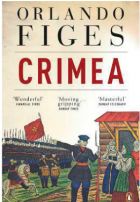
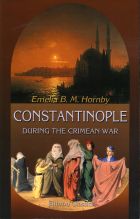
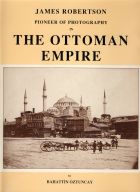
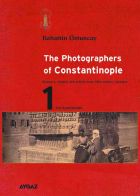
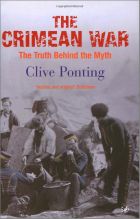

Cornucopia works in partnership with the digital publishing platform Exact Editions to offer individual and institutional subscribers unlimited access to a searchable archive of fascinating back issues and every newly published issue. The digital edition of Cornucopia is available cross-platform on web, iOS and Android and offers a comprehensive search function, allowing the title’s cultural content to be delved into at the touch of a button.
Digital Subscription: £18.99 / $18.99 (1 year)
Subscribe now